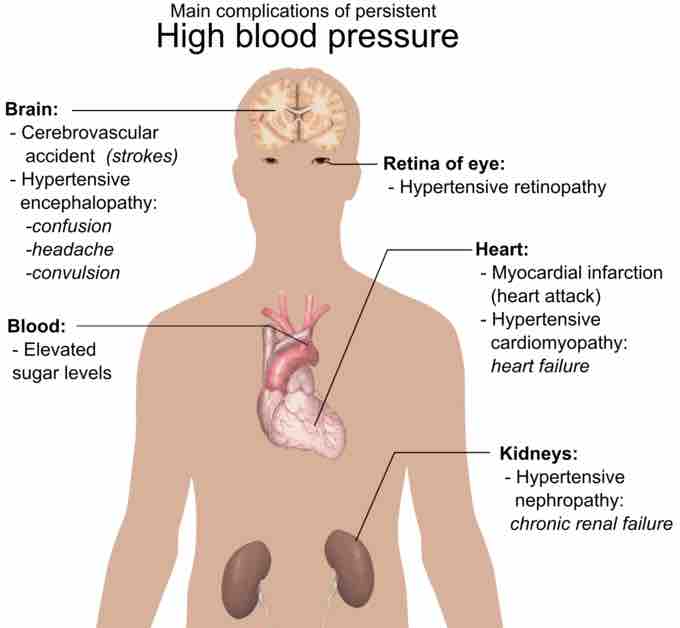Hypertension
Hypertension (HTN) or high blood pressure, sometimes called arterial hypertension, is a chronic medical condition in which the blood pressure in the arteries is elevated. This requires the heart to work harder than normal to circulate blood through the blood vessels. Blood pressure involves two measurements, systolic and diastolic, which depend on whether the heart muscle is contracting (systole) or relaxed between beats (diastole).
Normal blood pressure at rest is within the range of 100-140mmHg systolic (top reading) and 60-90mmHg diastolic (bottom reading). High blood pressure is said to be present if it is persistently at or above 140/90 mmHg. The repercussions of chronically elevated blood pressure included widespread damage to the circulatory system, arterial disease, cardiac failure and even neurological impairments
PRIMARY AND SECONDARY HYPERTENSION
Hypertension is classified as either primary (essential) hypertension or secondary hypertension; about 90–95% of cases are categorized as "primary hypertension" which means high blood pressure with no obvious underlying medical cause. The remaining 5–10% of cases (secondary hypertension) are caused by other conditions that affect the kidneys, arteries, heart or endocrine system. In most people with established essential (primary) hypertension, increased resistance to blood flow (total peripheral resistance) accounts for the high pressure while cardiac output remains normal. This increased peripheral resistance is mainly attributable to structural narrowing of small arteries and arterioles, although a reduction in the number or density of capillaries may also contribute. Secondary hypertension results from an identifiable cause. Renal disease is the most common secondary cause of hypertension. Hypertension can also be caused by endocrine conditions, such as Cushing's syndrome, hyperthyroidism, hypothyroidism and acromegaly. Other causes of secondary hypertension include obesity, sleep apnea, pregnancy, and coarctation of the aorta.
There are many complications of chronic hypertension . Hypertension is a major risk factor for stroke, myocardial infarction (heart attacks), heart failure, aneurysms of the arteries (e.g. aortic aneurysm), peripheral arterial disease and is a cause of chronic kidney disease. Even moderate elevation of arterial blood pressure is associated with a shortened life expectancy. Dietary and lifestyle changes can improve blood pressure control and decrease the risk of associated health complications, although drug treatment is often necessary in people for whom lifestyle changes prove ineffective or insufficient.

High Blood Pressure Complications
Persistant high blood pressure can affect many areas of the body.